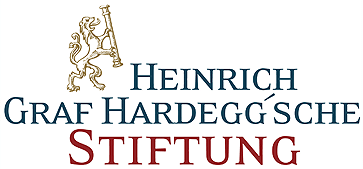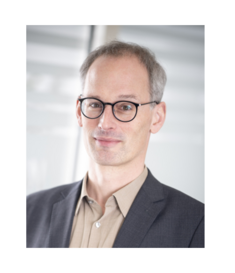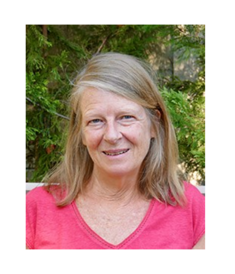Annual Meeting of the Austrian Economic Association (NOeG) 2024
"Transition to a low carbon economy"
Global warming caused by greenhouse gases from human activities is the most serious threat to long-run economic development and the life of human beings. Significant changes on all aspects of our behaviour and in all sectors of the economy are imperative. The annual conference of the Austrian Economic Association (NOeG) aims to discuss the economic consequences, challenges and potential pathways of our transition to a low carbon economy. The organizers invite submissions on this topic as well as from all areas of economics including macroeconomics, economic development and growth, environmental and ecological economics, resource and agriculture economics, labor and demographic economics, microeconomics and industrial organization, urban and regional economics, etc.
Booklet & Conference Agenda
Registration
Registration was open from June 1 until July 22 2024 at https://www.conftool.net/noeg2024/
If you have any questions please contact noeg2024(at)boku.ac.at!
Conference fee:
For NOeG members: 0 € (membership is € 55/year - see www.noeg.ac.at)
For non-members: 100 €
Livestream of Keynote Lectures
Keynote Lecture 1 by Katheline Schubert
(University Paris 1 Panthéon-Sorbonne and Paris School of Economics)
Time:
Monday, 02/Sept/2024:
17:30 - 19:00
LINK: https://www.youtube.com/live/N7hN4-dwBK0
(The keynote is part of the Opening Session of the conference. Stream starts at 17:30, Keynote Lecture starts at about 17:50)
Title: Sobriety. A necessity to fight climate change?
Given the slow pace of progress in climate policy, policymakers are increasingly focusing on reducing demand for energy-intensive goods and services as a crucial component of the energy transition. This is "energy sobriety," defined in this talk as the voluntary reduction of demand, particularly at the household level. Key factors such as education, information, and behavioral nudges play a vital role in fostering changes in preferences and reducing behavioral biases to achieve this sobriety.However, energy sobriety cannot rely solely on individual actions. The talk underscores the importance of societal changes, including infrastructure development and the evolution of social norms, to support more sustainable lifestyles. Moreover, while voluntary behavioral changes are essential, they are insufficient on their own. Achieving significant emission reductions requires comprehensive and ambitious climate policies, along with broad societal and infrastructural transformations.The talk finally highlights the need for equity in these efforts, emphasizing that wealthier individuals and nations should bear a greater share of the burden.
Keynote Lecture 2 by Karsten Neuhoff
(Technical University Berlin and DIW)
and Panel Discussion
Tara Estl (Austrian Institute of Technology), Karl Gruber (Wien Energie) and Jürgen Schneider (Ministry of Climate Protection); Marlene Nowotny (Presenter, Ö1)
Time:
Tuesday, 03/Sept/2024:
11:30 - 13:00
LINK: https://www.youtube.com/live/LDYUrC9VKbw
Title: Changing paradigms – how can electricity market design support reliable affordability and a clean and resilient energy system?
The energy crisis and global energy technology developments have triggered a revision of energy policy objectives, from short-term cost minimization to reliable affordability, from a focus on clean energy sources like wind and solar to clean energy systems with sufficient flexibility to match wind- and solar production, and from securing adequate generation capacity to ensuring resilient energy systems. The implications for power market design can be illustrated with economic and institutional analysis of three reform options discussed at national and European level: (i) A renewable energy pool to provide long-term hedges for producers and consumers (ii) A transition towards local pricing to incentivize investment and use of demand side flexibility for congestion management (iii) A reliability reserve to address mid-transition uncertainties while retaining incentives for flexibility and hedging. Synergies that can be realized across such options illustrate how important an integrated perspective will be for the upcoming reforms.
Date & Venue
September 2-3, 2024
BOKU Vienna, Ilse-Wallentin-Haus
Peter-Jordan-Straße 82, 1190 Vienna
Keynote Speakers
Karsten Neuhoff is Professor at the Institute of Economics and Business Law at Technical University Berlin and Head of the Climate Policy Department at DIW Berlin. His topic: How to design carbon pricing, power market design and further policies for an economically and socially successful transformation to climate neutrality? Based on independent scientific research he engages in mutual transfer between science, politics and other stakeholders, for example in the Sustainable Finance Advisory Council of the German Federal Government. He leads policy advice projects for the German government and the EU Commission and has published 48 journal articles and 4 books. Karsten Neuhoff holds a Master in Physics from the University of Heidelberg and a PhD in Economics from the University of Cambridge.
Katheline Schubert is a Professor at University Paris 1 Panthéon-Sorbonne and at Paris School of Economics. She graduated from Ecole Centrale Paris and earned her PhD in economics from University Paris 1.
She is a member of the French High Council for Climate and of the French Council of Economic Advisors. She is also past-president of the French Economic Association.
Katheline Schubert is an applied theorist, Her research interests are in environmental economics, natural resources economics, dynamic macroeconomics and sustainable growth. Her most recent works are on climate economics and on the energy transition.
She has published on these topics in many academic journals, among which the American Journal of Agricultural Economics, the Energy Journal, the Journal of Economic Theory, the Journal of Mathematical Economics, the Journal of Environmental Economics and Management, the Journal of Economic Dynamics and Control, the Journal of Public Economic Theory, the Journal of the Association of Environmental and Resource Economists, the European Economic Review.
Program Committee
| Zsofia Barany | Central European University |
| Birgit Bednar-Friedl | University of Graz |
| Esther Blanco | University of Innsbruck |
| Pirmin Fessler | Oesterreichische Nationalbank |
| Emanuel Gasteiger | TU Wien |
| Philipp Heimberger | The Vienna Institute for International Economic Studies (wiiw) |
| Daniel Huppmann | International Institute for Applied Systems Analysis (IIASA) |
| Claudia Kettner | Austrian Institute of Economic Research (WIFO) |
| Monika Köppl-Turyna | EcoAustria |
| Agnes Kügler | Austrian Institute of Economic Research (WIFO) |
| Georg Lehecka | Financial Market Authority (FMA) |
| Bernhard Mahlberg | Institute for Industrial Research |
| Hermine Mitter | University of Natural Resources and Life Sciences (BOKU) |
| Klaus Nowotny | University of Salzburg, Austrian Institute of Economic Research WIFO |
| Dieter Pennerstorfer | Johannes Kepler University Linz |
| Michael Pfaffermayr | University of Innsbruck, Austrian Institute of Economic Research (WIFO) |
| Oliver Picek | Momentum Institut |
| Erwin Schmid | University of Natural Resources and Life Sciences, Vienna (BOKU) |
| Johannes Schmidt | University of Natural Resources and Life Sciences, Vienna (BOKU) |
| Philipp Schmidt-Dengler | University of Vienna |
| Matthias Schnetzer | Austrian Federal Chamber of Labour, Vienna University of Economics and Business (WU) |
| Sigrid Stagl | Vienna University of Economics and Business (WU) |
| Karl Steininger | University of Graz |
| Martin Wagner | University of Klagenfurt, Bank of Slovenia, Institute for Advanced Studies Vienna (IHS) |
| Andrea Weber | Central European University |
| Doris Weichselbaumer | J. Kepler University Linz |
| Christoph Weiß | Vienna University of Economics and Business (WU) |
| Klaus Weyerstrass | Institute for Advanced Studies Vienna (IHS) |
| Lisa Windsteiger | University of Salzburg, ifo Institute |
| Christine Zulehner | University of Vienna |
Local Organizing Committee
Carina Auzinger
Andreas Eder
Irene Konrad
Heidi Leonhardt
Ulrich Morawetz
Iris Richter
Klaus Salhofer
Sebastian Wehrle

Thanks to our Sponsors





